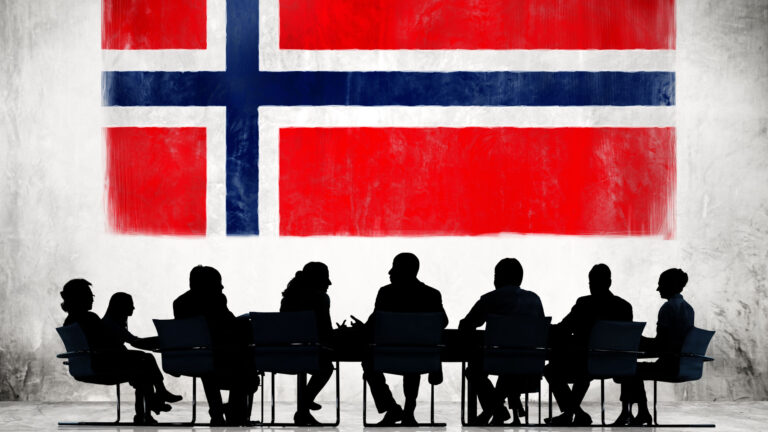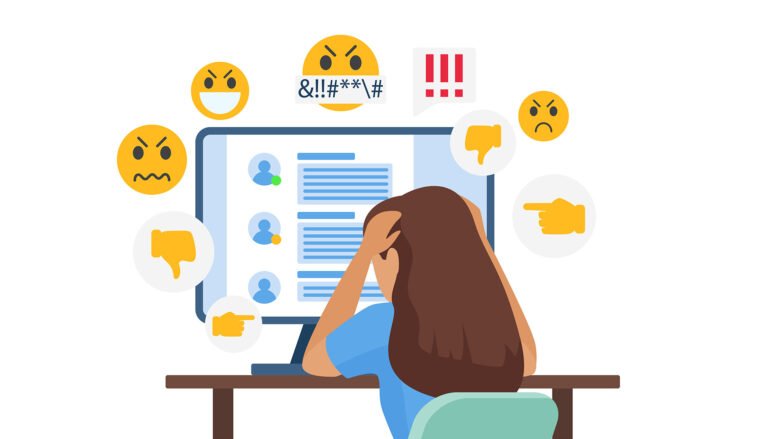Nervous about taking a job in Norway? Here is our guide to discrimination in the workplace in Norway and the rules and regulations that apply.
Almost anyone who moves to a new country, experiences discrimination to a certain degree. Despite being one of the most equal countries in the world, it happens also in Norway.

If you feel unfairly treated because of your accent, that you don’t get job interviews because of your name, or that your employer is disrespectful of your ethnicity or religion, there are things you can do.
When it comes to Norwegian office life, discrimination isn't something many people talk about publicly. But it's an important one to talk about here, because it can and does happen.
With that in mind, here is what you should know about workplace discrimination in Norway, and what you can do if it happens to you.
Laws that apply
Discrimination in Norwegian workplaces is illegal under employment laws. The specific laws that apply are available in Norwegian here:
All Norwegian employers are also obliged to work systematically against discrimination.
What is discrimination?
The official definition is rather long: “Discrimination is unfair treatment or impartiality because of age, political view, gender, pregnancy, childbirth or adoption, care responsibilities, ethnicity, religion, belief, disability, sexual orientation, gender identity, or other significant characteristics of a person.”
This article focuses on what immigrants to Norway often face: discrimination because of nationality, ethnicity, religion and language. You should also read our article all about workplace bullying in Norway.
It’s not all bad
Even though discrimination is quite widespread, there are also employers who not only fight discrimination, but also embrace diversity. They hire new immigrants in high paying supervising positions, have special programs for inclusion, and custom made language courses.

Some also actively recruit directly from outside Norway, and allow people to speak English. These are employers that understand they have to make an extra effort to attract the most qualified people and who look at minorities as people who can bring new insight and innovation to a company.
On the other side of the spectrum are employers that want people who fit in immediately, know the secret code, and have the right contacts.
They think that having a foreign accent is a drawback, that cultural diversity will create friction in the work environment, or that customers will react negatively to religious head coverings.
They also often have very plausible and reasonable explanations for all of this, and hardly think they are discriminating. So how do you know if you are discriminated against? It is very rarely black and white, but let's take a closer look.
The job interview
In a job interview, the employer is not allowed to ask about a list of things, including religion, beliefs and ethnicity. Under no circumstances are they allowed to use any of these as reasons for hiring or not hiring somebody.
There are some very rare exceptions. One example is knowledge of faith if you are going to work for a religious organisation.

But even then, the job advertisement has to state that this is something you may be asked about. This is not a question that can come out of the blue, regardless of the job.
Nationality or ethnicity
Unfair treatment because of nationality or ethnicity, is considered discrimination. An example is rejecting job applications just because of someone’s name. This is unfortunately not uncommon. Surveys have shown that a foreign name reduces the chance of being called for an interview significantly.
The political situation and current events also play a role in how people are treated differently. When Russia recently attacked Ukraine, Russians in Norway experienced increased discrimination.
One example is that a Russian woman got a job interview cancelled because the employer meant clients would react negatively to her Russian nationality. They made no effort hiding this. In fact she got the message in writing. Most Norwegian experts said this is an obvious example of discrimination.
Religious discrimination
It is not legal to deny employees the right to express their religion. The prohibition of religious headwear such as hijabs is also considered discrimination.
The only rare exceptions are when there are strict hygienic or security reasons. For example, firefighters may be prohibited from wearing headwear in some situations.
Language and accents
What about language skills? Surprisingly enough, the main rule is that it is not legal to emphasize language skills when hiring. Although, this is a case where there are many exceptions.

Of course a majority of jobs require proficiency and even excellence in Norwegian. But there are jobs that only require moderate language skills, and where written Norwegian is less important.
Examples might be in the construction or agriculture industries, or other parts of the service industry, like maintenance and cleaning. These are jobs where qualifications other than Norwegian skills should be considered more important.
Employers who emphasize the ability to speak and write Norwegian too strongly, may be discriminating. Accents are not considered a lack of language skills, and is not something an employer can use as an argument in the hiring process.
How to combat discrimination
So if you feel discriminated against, what can you do?
Collect evidence
Proving discrimination, could be very hard. But it is always important to collect and save as much evidence as possible. The more you have in writing, the better.
Stand up for yourself
If you have the courage, speak up and let the other person know what you find unacceptable. Of course this is easier said than done. But there is always a possibility the other person is just being inconsiderate, and they actually appreciate that you tell them how you feel.
Talk to someone neutral
You can also talk to a union representative, safety representative, your company’s health service (bedriftshelsetjeneste) or human resources. They can guide you in internal policies and participate in meetings.
Seek legal advice
The Equality and Anti-Discrimination Ombud, is a governmental organization who can give you advice and guidance regarding discrimination at the workplace and when applying for work.

They can help you assessing if you have a valid case.The Ombud will not interfere in the process, and this is free of charge
Send a complaint to The Anti-Discrimination Tribunal
You can also send a complaint to The Anti-Discrimination Tribunal, which is an independent administrative organization that is quite recently established. The Tribunal doesn’t represent or assist either party (employer or employee).
The Tribunal aims to be an alternative to judicial proceedings in cases of discrimination, harassment and retaliation towards whistle-blowers. They are free of charge.
Going to court
It is also possible to sue the employer, but this is often a high-risk project. It is not recommended until you have tried the other options.
Legal preferential treatment
Sometimes, preferential treatment is legal, and is even politically motivated.
An example is the Law for the Norwegian government, where the rule is that if there are applicants to a job who are formally qualified and of immigrant background, at least one of them shall be invited to a job interview.
There is a long list of countries this applies to, like most of Africa, Asia and Latin America, and others which are excluded, like EU, Canada, US, Australia and New Zealand. The intention is to increase the employment rates amongst visible minorities.
Discrimination and bullying
Discrimination is often linked with workplace bullying. People who differ from the majority in one way or another, are unfortunately easier targets. At the same, minorities may find it more difficult to speak up, because they already feel vulnerable.
Examples of bullying:
- Making fun of or copying someone’s foreign accent.
- Ridiculing someone for not eating pork and drinking alcohol at a Christmas party because of religious faith.
- Consequently dismissing or ignoring opinions from someone because they are not Norwegian. Or not inviting them to client meetings.
It is very important that when you feel discriminated against or bullied at work, don’t keep it to yourself.
There is a system out there that can help if you reach out. And don’t think it’s just in your head or that it’s your own fault. This is very unhealthy, and rarely the case.


Hi, thanks for the article, I have a question : I have been forced to resign because of my religious belief in Jesus Christ. To give you the whole story I was a Associate Proffessor and in my discussions with students I mentioned Jesus a few times. After being warned a few times I had to resign, I am not sure if this was legal or not, just asking !
Hi, I am sorry you had to resign. Freedom of religion is a human right, and nobody should have to resign for being openly Christian. Preaching is, however, not legal in Norwegian schools. But it is hard to say if the process is legal without having more information and see the documentation.